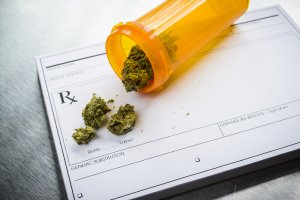Narconon Blog
OPIOID CRISIS
Pharmacy Chains Now in the Spotlight for Their Role in the Opioid Crisis
The last few years have produced an array of legal cases that finally bring pressure to bear on the pharmaceutical industry for its role in the opioid epidemic. From lawsuits brought against pharmaceutical manufacturers to litigation with distributors, every aspect of the pharma network has come under scrutiny. Recently, several pharmacy chains were examined for their role in dispensing overwhelming numbers of addictive opioid painkillers into the public’s hands.
Dental Work and Opioid Addiction
Dental work should not lead to opioid misuse. Yet, in increasing numbers, dental patients, particularly young patients, are being exposed to highly addictive opioid pain relievers, and it's causing them to experience life-threatening overdoses.
Isotonitazene Intensifies the Opioid Epidemic
The trafficking and abuse of new synthetic opioids are deadly trends.
Opiate Prescribing Trends Have Fallen – What Does that Mean for Opiate Addiction?
Opiate prescribing trends seem to have fallen across America. This is movement in the right direction; however, there is still much to do to effectively tackle addiction in our nation.
One Percent of Doctors Responsible for 25 Percent of Opiate Prescriptions – A Look at Overprescribing
Sometimes we want to blame the medical community for the opiate epidemic our nation is now stuck in. But as it turns out, the vast majority of doctors have nothing to do with the overprescribing of addictive pain meds. In fact, only a small percentage of doctors are contributing to this serious problem.
Medical Marijuana Is Not the Answer to the Opioid Epidemic
As interest in marijuana use has moved forward (partially thanks to state legislation), some proponents of the cannabis movement have said that medical marijuana might be a solution to the opioid epidemic.
Opioids and Meth—the Crippling Nature of Two Life-Threatening Drug Addictions
The misuse of any drug is going to have negative consequences. The consequences might vary depending on the drug being used and other circumstances, but the results are likely going to be the same no matter what drug you are using.
Could Hospitals Institute Policies for Non Opioid Pain Management?
For decades, drug addiction has been a problem in the United States. We continuously see the daily headlines of terror and trauma relating to addiction. We are inclined to think that this is a new problem. In actual fact, this is not a new problem at all. There is just more of the problem.
The Not So Quick Fix
Our society functions with the idea that a drug will solve all our problems. Are you in pain? Here’s a pill. Do you have a headache? Here is another pill. Are you sad? Pill! Drug problem? Here's a pill to solve your drug problem.
How Do We Treat Addiction and Pain?
The issue with opioid pain relievers has the appearance of one of those unsolvable paradoxes. If we reduce access to opioid pharmaceuticals considerably, patients who experience chronic and severe pain issues might not be able to access pain relief. But in that same token, if we continue to accept opioid pharmaceuticals as standard medical practice and utilize them to the degree that we are, millions of Americans will become addicted to them, and thousands will die from overdoses on them. That is the brutal truth of the matter.









